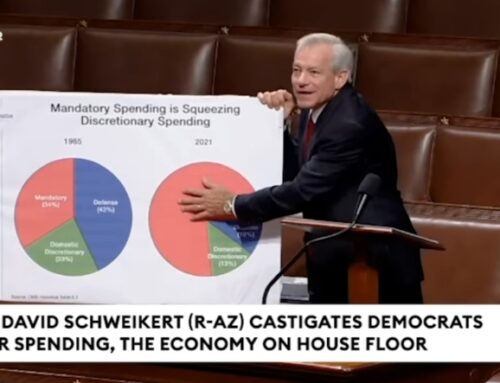Us bumpkins out here in the unwashed masses (read: those of us who don’t hold PhD’s in economics and work for a central bank) might think that “Neither a borrower nor a lender be” are words to live by. But boy, lemme tell ya, them folks with them there high-falutin’ edumacations have got it all over on us when it comes ta lendin’!
While we don’t like to lend money because we might not get paid back, they don’t worry about that at all! Why not, you ask? Simple! They’ve got it all hedged! What’s a hedge? Simply put, it’s when someone else guarantees payment on the debt. It’s kind of like private mortgage insurance: for a monthly fee, someone else will guarantee your mortgage payment in case you can’t pay. (And it doesn’t end there. You can hedge your debt and even your hedges themselves against currency risk, interest rate risk…in fact, you can write so many hedges that it would take a phalanx of New York Lawyers months to figure it out. Maybe we’ll talk about that sometime.)
This kind of insurance deal isn’t just for home mortgages; trillions of dollars of all kinds of business debt are insured by third-party insurers. It’s all done for a fee, like an insurance premium. But there are a few differences. First of all, anyone can buy or sell this kind of insurance, insuring anyone’s debt or their own, as long as they can find someone willing to either write the “policy” and accept the risk or buy the insurance from them. Not only that, and this is the good part: anyone can, by writing the right kind of contract, bet that you will default. In fact, I can make a lot of bets with the right kinds of contracts that will make me rich if you default. That’s like buying a huge fire insurance policy on your neighbor’s house and then “hoping” that your neighbor’s house burns to the ground. Hold that thought for a moment.
The big banks borrow and lend hundreds of billions of dollars. What if borrowers are NOT paying on time? Then, if there is a third-party insurer, they must step up and pay. Going back to the mortgage example; during normal economic times just a small number of mortgage holders don’t pay, so the insurer doesn’t have to make many payments. But when the economy collapses, lots and lots of people can’t pay and suddenly the mortgage insurance company has to make more payments than it ever thought possible.
What does this mean? It means the debt insurance scheme is only as good as the insurers. If the insurers go bust, then all those loans the bank holds have to be written down, causing the bank to lose money and threatening the bank’s solvency. So we’d better have very very sound insurers, right? Well, who are these insurers? I am sure you’ve heard of one: AIG Financial Products Group.
A “derivative”, in finance, is some financial product whose value is “derived” from something else. For example, the cost of insurance is derived from the risk. A timely-paying loan has a cheap insurance cost, but if the loan payments stop coming, the insurance cost for that loan goes up. It’s the same thing as car insurance going up when you have an accident, or when you add a teenage driver to your policy. Organizations that write contracts to either sell or buy debt insurance are “counterparties” to that contract. Here’s the important point: an insurance contract is a promise to pay. Promises to pay have another name: debt. In other words, all of the debt that Wall Street claims to have protected by “hedging” with insurance is just protected with someone else’s debt. It’s almost like some kind of scam, isn’t it?
How much debt, and how much of each other’s insurance do the big banks hold? Here is a graphic produced by the “Financial Crisis Inquiry Commission (FCIC)”. The numbers are real, and they represent only Goldman’s counterparties . The graphic is too large to fit on this page and still be readable, so please follow the link below. Here’s the final point: what happens to this mess when just one of these counterparties goes bust? The whole thing collapses. THAT is the genesis of Too Big To Fail, about which FinReg does absolutely nothing. Since 2008, the big banks have gotten bigger.
OK, click below. Don’t forget to breathe. Props to Antal Fekete for the quote in the title of this post.





